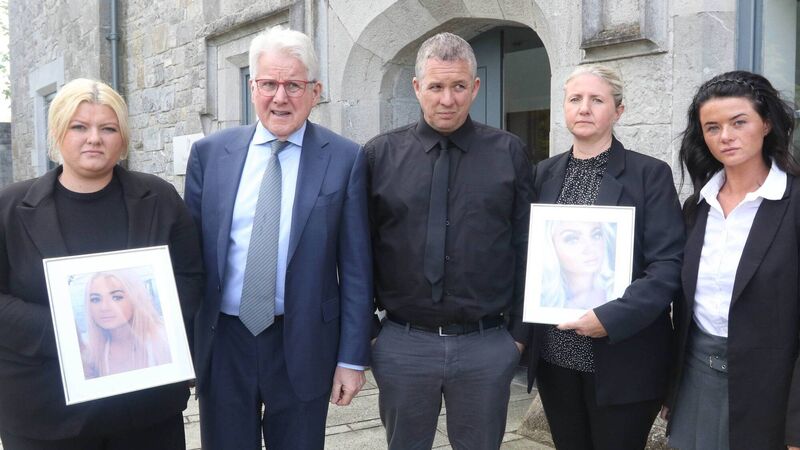‘Systemic failures’ seen in Aoife’s care

Solicitor Damien Tansey, second from left, with the Johnston family outside Kilmallock Courthouse. Picture: Brendan Gleeson
During four days of harrowing evidence, an inquest heard how Aoife Johnston — a teenage girl on the cusp of adulthood — died while in the care of University Hospital Limerick (UHL).










